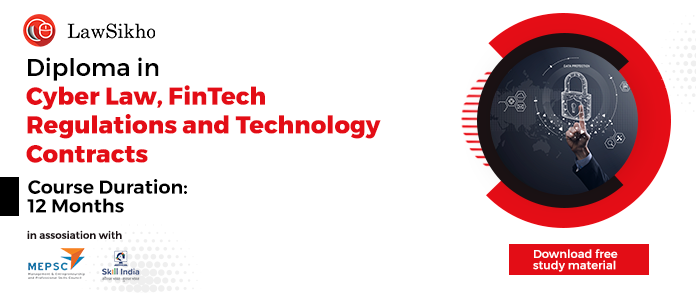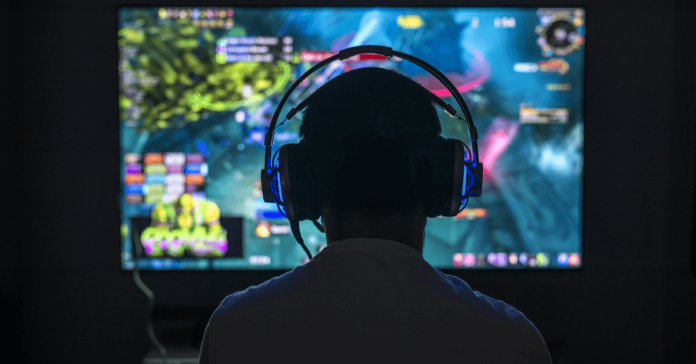This article has been written by Nidhi Mishra, purusing a Diploma in US Corporate Law and Paralegal Studies from LawSikho.
It has been published by Rachit Garg.
Table of Contents
Introduction
In India, playing online games is not illegal, as the government defines online games as “a game that is offered on the internet and is accessible by a user through a computer resource or an intermediary.” Access to the internet and the trend of using smartphones in remote villages have taken a paradigm shift in the gaming industry to another level. According to the evidence collected by KPMG India, it is suggested that the Indian online gaming industry is set to become an INR 25.3 billion industry by 2024. Seeing the rise in popularity of online gaming, many foreign companies have set up operations in India, and more are thinking of setting up operations there.
After having a booming industry which is increasing its market at an exponential rate, is also necessary to boost our economy, we in India don’t have umbrella legislation to regulate online gaming in India to avoid the confusion being created in the gaming industry.
Historical background and legality online gaming
Online games are regulated by the Public Gambling Act 1867 and the Information Technology Act 2000, which govern online gaming activities in India. Section 66 of the IT Act deals with the crime related to computers , whereas Section 67, 67A, and 67B deal with the discretion to make laws on the subject of online gaming, as gambling and betting are mentioned in the state list of the constitution.
Game of skill vs. Game of chance
Online games are played using human intellect, i.e skill, and because of the ‘game of skill’, and which is legal in India. In contrast, online games played using chance where results are obtained by a chance not using human intellect is a ‘Game of chance’ which is not legal in India.This is the reason why gambling and betting is not legal in Indian states, which put people under financial risk , mental trauma etc.
Legislation affecting online gaming in different states
- Bombay Prevention of Gambling Act, 1887
- Punjab Public Gambling Act, 1867
- Madhya Pradesh Public Gambling Act,1867
- Tamil Nadu Gaming Act, 1930
- Tamil Nadu City Police Gaming Rules, 1949
- The West Bengal Gambling and Prize Competitions Act, 1957
- The West Bengal Gambling Rules, 1958
- Uttar Pradesh Public Gambling Act, 1961
- The Meghalaya Prevention of Gambling Act, 1970
- The Kerala Gambling Act, 1960
- The J. & K. Public Gambling Act, 1977
- Goa, Daman and Diu Public Gambling Act, 1976
- The Pondicherry Gaming Act, 1965
- The Rajasthan Public Gambling Ordinance, 1949
Assam’s government passed legislation, the Assam Game and Betting Act 1970, which failed to distinguish between the game of skill and the game of chance.
The Sikkim Online Gaming Act of 2008 was passed to regulate the intentions of the gaming industry by imposing taxes on them and to control the exploitation of the industry. But in 2018, an amendment was proposed in the Sikkim Online Gaming Regulation Rules that introduced a new mandatory provision for playing online games. It is mandatory to have identity photo to get into the zones of Sikkim, and it prohibits the locals from getting into these betting games without suffering financial and mental loss.
In Nagaland, similar legislation was passed regarding online gaming, i.e Nagaland Prohibition of Gaming and Promotion and Regulation of Online Games of Skill Rules 2016, which inspects, regulates and keeps tabs on skill-based games like sudoku , car racing, solitaire, etc.
Nagaland now has a licensing authority for online games categorised under mere skill. Only Sikkim has a licensing regime for games of skill and chance. In 2020, Telangana and Andhra Pradesh imposed a ban on any online gambling or real money gaming activities.
Karnataka’s Government has recently amended its gaming laws to restrict its people from playing online games of chance, i.e., gambling, betting, and wagering.
These laws are somewhere trying to protect people from financial loss, addiction, and mental trauma and trying to make an amicable environment for the players to play without any stress or fear in mind.
Recent developments in online gaming laws
In April 2023, the Ministry of Electronics and IT, after looking into the loopholes in state laws on online gaming, announced new regulations to protect online gamers from addiction and harmful content.
The Information Technology (Intermediary Guidelines and Digital Media Ethics Code) Rules, 2021 (“IT Rules”), are amended to include these regulations. It will mainly look into online real money games.
These regulations will act as central authority to govern the gaming industry, but they have not replaced the state laws.The state laws have their existence; therefore, state-wise action may continue notwithstanding the Amendments.
Proposed amendments for 2023

In the amendments to IT Rules of 2021 , these recommendations are applied only to real money games and to the free game of skills, which includes online fantasy sports contests , e-sports, card games, etc.
Firstly,the government will establish a three-tier dispute resolution mechanism by establishing a Grievance redressal system for regulating the gaming platform,
setting up a self-regulatory organisation for the proper registration and certification of games online and approving the games only when they comply with the new rules. Initially, three self regulatory organisations will be notified by the government, comprising different fields, i.e., educationists, experts in health sciences, social workers specifically dedicated to the protection of children, etc.
Secondly, it defines permissible online real money games as Games where the player deposits cash or kind in the expectation of earning more cash or winnings. And these online real money games should be verified with the self-regulatory bodies.
Thirdly , the Amendments introduce regulations that apply to online gaming intermediaries , defined as ‘an intermediary that enables the users of its computer resource to access one or more online games. A number of intermediaries play a role in gaming industry, such as internet providers, web hosting companies, cloud services, social media platforms, etc.
Fourthly, for verification of the users, i.e., KYC (Know your customer), the online gaming intermediaries will have to verify the user before accepting the first deposits in cash or kind in any permissible online real money games. KYC to be followed for customer identification is due diligence and monitoring process followed by the regulated entities, which are banks , NBFCs, financial institutes, etc.
Fifthly, the prohibition of online games related to gambling, including the ads for the games and the players regulations themselves, will ensure that the games follow the guidelines related to the prevention of addiction and mental harm through parental supervision.
Sixthly, The Group of Ministers (GoM) set up to review the goods and services tax (GST) on online gaming received 18% for casinos, and horse racing is likely to stay with the 28% tax on gross gaming revenue (GGR).
Case laws
Varun Gumber V Union Territory of Chandigarh (2017)
Facts
In this case, the petitioner, “Varun Gumber”, approached the Punjab Haryana High Court, stating that he wanted to ban the online game “Dream 11” as it falls under the category of Game of Chance. He further stated that he lost approximately $50,000 on the app playing different games. After that, the respondents contended that the game Dream 11 is not a game of chance and then explained the concept of fantasy games where a team is formed in the virtual world by the participant, who firstly has to select the game he/she wants to play, for example, cricket; thereafter, he needs to form his own team by selecting the players from the two teams present; and after forming his team, he enters the contest with lots of other participants. Fantasy sports work on the basis of the players playing on the ground in real life in that match, and the points scored will increase or decrease according to the players playing on the pitch. After the match is over, the participant with the highest score receives the prize money.
And the counsel of the respondent further contended that to play a game, the participant should have a lot of knowledge of the sport, the formation of the team , the type of match, etc. Hence, there is very little chance to consider Dream 11 a Game of chance.
Hence, the Court held that “the element of skill” is the predominant outcome of Dream 11 games. And on the basis of the above analysis, it is exempt from the Provision of Gambling Act 1867 (PGA).
Galactus Funware technology v State of Karnataka (2022)
Facts
In this case, the petitioners from the online gaming industry have filed a writ petition under Art. 226 of the Indian Constitution in the Karnataka High Court against the Amendment in Karnataka Police (Amendment) Act 2021, which criminalises betting, wagering, and gambling, whether by playing a game of skill or a game of chance. And it includes all types of betting and wagering. But on the other hand, playing games where cash or kind is not involved is not prohibited by the government. The Amendment has widened the scope of “gaming” under Section 2(7), which prohibits online games of skill when played with money . The petitioners argued that this Amendment results from excessive paternalism and populism.
The Court held that Amendment ultra vires the fundamental right to equality Art 14 as it prohibits games of skill and chance where stakes are involved, despite
differences established between the two. Since the Act violates the principle of proportionality, it absolutely quashes the game of skill. The Amended definition of gaming in Sec. 2(7) is directly contradictory to the amended Section 176 of the Principal Act, which states to maintain the difference between the game of skill and the game of chance. The Court further stated that banning all games involving monetary stakes in the public interest has no data to support the arguments and further held that the legislation should be made without violating the basic structure of the constitution.
Conclusion/ Suggestion
The rise of the market for online gaming in recent years and the lack of a central law to regulate the online gaming industry have created a huge hazard in society. Betting and Gambling being on the state list empowers the state to make laws on the same, and this leads to different interpretations on the same subject, creating a haphazard situation in society. Now it’s high time for the Central government to shift the subject of betting and gambling to the union list and make an umbrella legislation to regulate the whole gaming industry.
There should be limited time on gaming applications for the users to play these online games, which helps the players not get addicted to the same, and some guidelines should be issued for the children playing these games. There is also some authority to look into the financial aspects involved in the gaming industry.
References:
- https://www.indiatimes.com/explainers/news/explained-online-real-money-games-and-what-are-the-recent-guidelines-to-regulate-them-599856.html
- https://www.google.com/url?q=https://indianexpress.com/article/technology/gaming/meity-new-online-gaming-rules-explained-8544334/&usg=AOvVaw2USlNgVDPrABRi7vyvd9iD&hl=en-US
- https://thedailyguardian.com/online-games-and-their-legal-framework-an-analysis/
- https://www.google.com/url?q=https://www.epw.in/journal/2023/21/special-articles/%25E2%2580%258B%25E2%2580%258B%25E2%2580%258B%25E2%2580%258B%25E2%2580%258B%25E2%2580%258B%25E2%2580%258Bonline-gaming.html&usg=AOvVaw1GYUCnCGRCSBPDrEOmocPJ&hl=en-US
- https://www.natlawreview.com/article/time-central-law-india-s-online-gaming-industry-now?amp=
- https://www.mondaq.com/india/gaming/1198906/state-of-play-online-gaming-and-anti-gambling-laws-in-india
- https://www.google.com/url?q=https://timesofindia.indiatimes.com/blogs/voices/skill-not-chance-will-be-needed-to-differentiate-game-of-skill-from-game-of-chance/&usg=AOvVaw1SD_xec2AWRlD_I8wPtEBK&hl=en-US
- https://www.lexology.com/library/detail.aspx?g=bd93a58a-e613-4aa8-ba0f-53f24dd785f5
- https://www.vidhikarya.com/legal-blog/new-online-gaming-laws-in-india-banned-games
- https://www.pib.gov.in/PressReleasePage.aspx?PRID=1918383
- https://www.pib.gov.in/PressReleasePage.aspx?PRID=1918383
- https://theprint.in/india/all-about-modi-govts-new-draft-rules-for-online-gaming-kyc-to-skirting-skill-vs-chance-debate/1297809/
- https://taxguru.in/corporate-law/online-gaming-regulations-india.html
Students of Lawsikho courses regularly produce writing assignments and work on practical exercises as a part of their coursework and develop themselves in real-life practical skills.
LawSikho has created a telegram group for exchanging legal knowledge, referrals, and various opportunities. You can click on this link and join:
Follow us on Instagram and subscribe to our YouTube channel for more amazing legal content.
 Serato DJ Crack 2025Serato DJ PRO Crack
Serato DJ Crack 2025Serato DJ PRO Crack










 Allow notifications
Allow notifications


